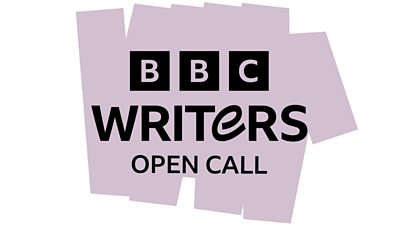This year the dates for our Open Call are from noon on Tuesday 4th November to noon on Tuesday 2nd December. Ahead of the submission window opening we turned to Hayley McKenzie for some tips and advice on making sure that your script is in its best shape.
How should writers get ready to submit their script to ��ѿ��ý Writers Open Call, or any other opportunity deadline?
Making sure you have enough time to do multiple revisions before the deadline is critical – don’t send your first draft! Building that evaluation and rewrite time into your process is important if you want to send your best work. So, aim to finish a first draft of the script a few weeks before the deadline to give yourself time to really elevate the script and make it the best you possibly can.
We also encourage the writers we work with to have done a lot of development on the idea/premise, characters and story, including outlining, before writing the first draft. That helps gives the first draft of the script more clarity of intent and a strong shape, which means there is less of the heavy lifting to do in the rewriting phase.
What are the common mistakes to watch out for and that you see in newer writers’ scripts?
Not getting the story up and running in first ten pages is by far the most common problem we see, closely followed by lots of scenes in which nothing changes and there’s no reason to keep reading/watching.
The opening ten pages of your script are critical. If they’re strong, people will keep reading. For ��ѿ��ý Writers Open Call they only read the first ten pages in the first sift and that’s not uncommon in our industry.
But writing a great first ten pages isn’t something you should be doing just because of an opportunity evaluation process, it should be what you want to do regardless. Great storytelling is about hooking your reader/viewer and then keeping them with you.
A lot of scripts we read have great characters but nothing happens. There’s often no clear goal for the protagonist, nothing much changes from one scene to the next, and so there is no sense of forward momentum or rising tension.
Conversely, some writers are great on plot and have lots happening, but the characters aren’t well developed and so we don’t really care about any of it. Get to know your strengths and weaknesses as a writer and try to improve your skills in the areas that come less naturally to you.

How can writers edit their own work more effectively?
It’s challenging to evaluate your own work honestly when you’re deeply immersed in it, so creating some time and distance from it before you try and analyse it is important.
When you come back to the script to start revising, try to create a separate evaluation phase and then a rewriting phase. Start by tuning in to your inner critic and just evaluate the script, making notes but not making any changes at this stage, as if you were giving feedback on someone else’s script.
Then once you’ve gathered all your own notes on what’s working and what needs looking at, move into a revision phase. To avoid overwhelm, we suggest only tackling one issue or element with each rewrite pass. For example, you might do a rewrite focused only on addressing a lack of escalating challenge in your protagonist’s story.
Which questions should writers ask themselves about their own work?
Here are just a few questions that you might find helpful as you evaluate your script.
- Is the premise clear and compelling? Can you sum it up in one or two sentences? When you read the script, is that the story you’ve dramatised?
- Have you nailed your genre? If it’s a thriller it should be thrilling throughout. If it’s a drama, it should deliver an emotional punch.
- Is it clear what your main character wants, is trying to achieve, and why? Does the plot create rising tension and an escalating challenge for your main character?
- Have the first ten pages got the story going and hooked us in? Is the plot giving your characters a hard enough time?
- Are all your characters well developed and believable, or are some of them just plot devices? Are you dramatising who your characters are through their actions and choices?
- Is the dialogue believable? Be sure to read it out loud to check!
How can writers get fresh eyes and feedback on their script to help them improve it?
Getting professional feedback is great if you have the opportunity, but most writers won’t be in a position to pay for help to develop their script.
But fresh eyes are invaluable, so start building a group of peers whose judgement you trust. Start by joining writers’ groups, either in-person or online. We love the online community that have built and there are others like that where you can meet other writers (virtually or IRL) who are at a similar stage to you and you can swap work and provide peer feedback for each other. There are also general film and tv networking groups (like ) where you can meet other creatives, like directors and actors, who are at a similar stage in their careers and looking for collaborators.
What questions should writers ask from someone reading their script to help them get constructive feedback?
It’s important to remember that feedback is not a comment on your worth as a human being. It is merely information. So, when processing, be like Sherlock; become the ‘consulting detective’ on the Case of the Improvable Script. Be curious.
Ask open ended questions. Resist the urge to tell someone how to respond (“it’s too long, isn’t it?”). If you do want to ask for feedback on a specific element, make it an open question. “I’d love to know what you think of the antagonist” is better than “Is the antagonist a bit one-dimensional?”
Observe. Not all responses will be analytical masterpieces but they (mostly) contain something useful. Switch to ‘listening mode’. Take in the response with an open mind. Try to understand the intent behind it.
Seek out multiple points of view. Getting feedback from a range of people will bring greater insight. Each reader will bring something different, and even conflicting notes can contain useful information. If two readers reacted to a scene in opposite ways, consider the source. Is one reader a body horror superfan who really gets your reference, while the other prefers family drama and is simply grossed out by the scene? Perhaps the former has a better point of view for this project.
Discard the red herrings. Sometimes, you just get bad feedback. The person hasn’t read your script properly; or they’ve read it in bad faith; they’ve brought their own agenda or personal issues to your work. Or their notes are just about how they would do it differently rather than about helping you tell your story better. That’s OK. Maybe the only information you can get from some feedback is ‘never ask this person again’.
Weigh the evidence. You’ve now got a few points of view on your project. Start to look for patterns. In general, getting the same note a few times means that something is wrong.
What can writers do to make receiving notes feel less painful?
Let’s be frank: when we ask for feedback there is a little part of us – that heady mix of ego and insecurity – that just wants to hear “WOW, this story has redefined the genre. You’re a genius”. When that isn’t the response, it can hurt. And it’s hard to process the information objectively if we’re taking it personally.
Firstly, separate yourself from the work. You’ve poured your heart and soul into this script so it’s not surprising that any criticism of the work feels like a criticism of you. But it is not.
Give yourself time and space to let any initial emotional reaction die down, then you’ll be more able to view the information received dispassionately.
Is there a ‘right’ way to go about evaluating and rewriting your script?
As with all screenwriting advice, these are just tools that you might find useful. It’s worth trying things out but if an approach doesn’t work for you, then try others, and you’ll eventually find a creative process that works for you.
It's a huge achievement just to finish a first draft of any script – so well done! But making time and finding the creative energy to really evaluate it and keep improving it will pay dividends. Good luck!
About Hayley McKenzie
Hayley McKenzie is the Founder and CEO of a leading global script development and screenwriter training organisation. With over 20 years of experience as a development executive at major broadcasters including ��ѿ��ý Studios, ITV Studios, and Channel Four Television, McKenzie has established herself as a key figure in developing emerging screenwriting and filmmaking talent and is a frequent speaker at major industry events including Content London and Cannes Film Festival.
Related Links
-
Open Call Find out full details
-
Open Call Resources Get more help and advice for your script
Latest blog posts
More blog postsSearch by Tag:
- Tagged with Open Call Open Call
- Tagged with Open Call resources Open Call resources
- Tagged with Tips Tips
- Tagged with Blog Blog
- Tagged with 2025 2025

